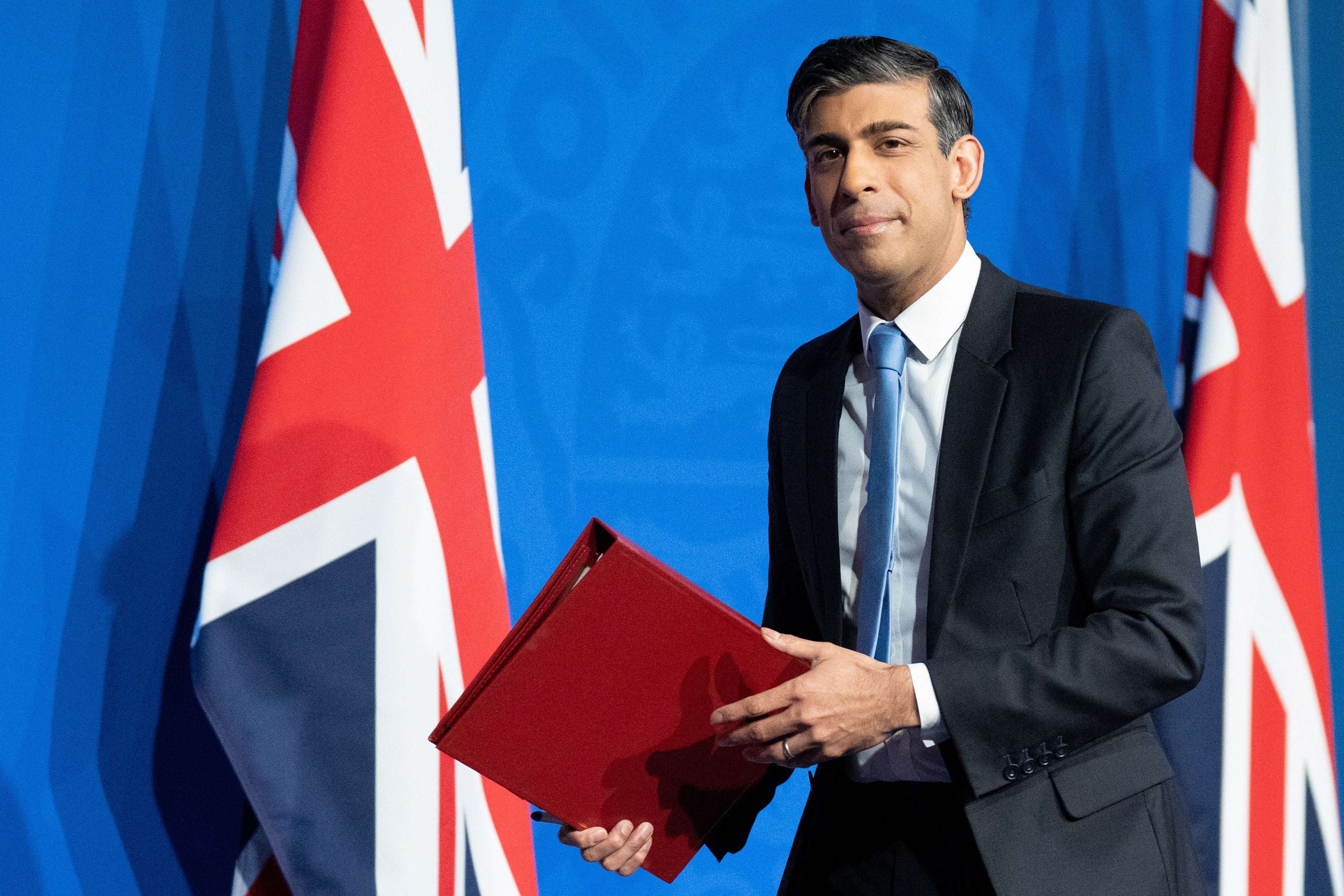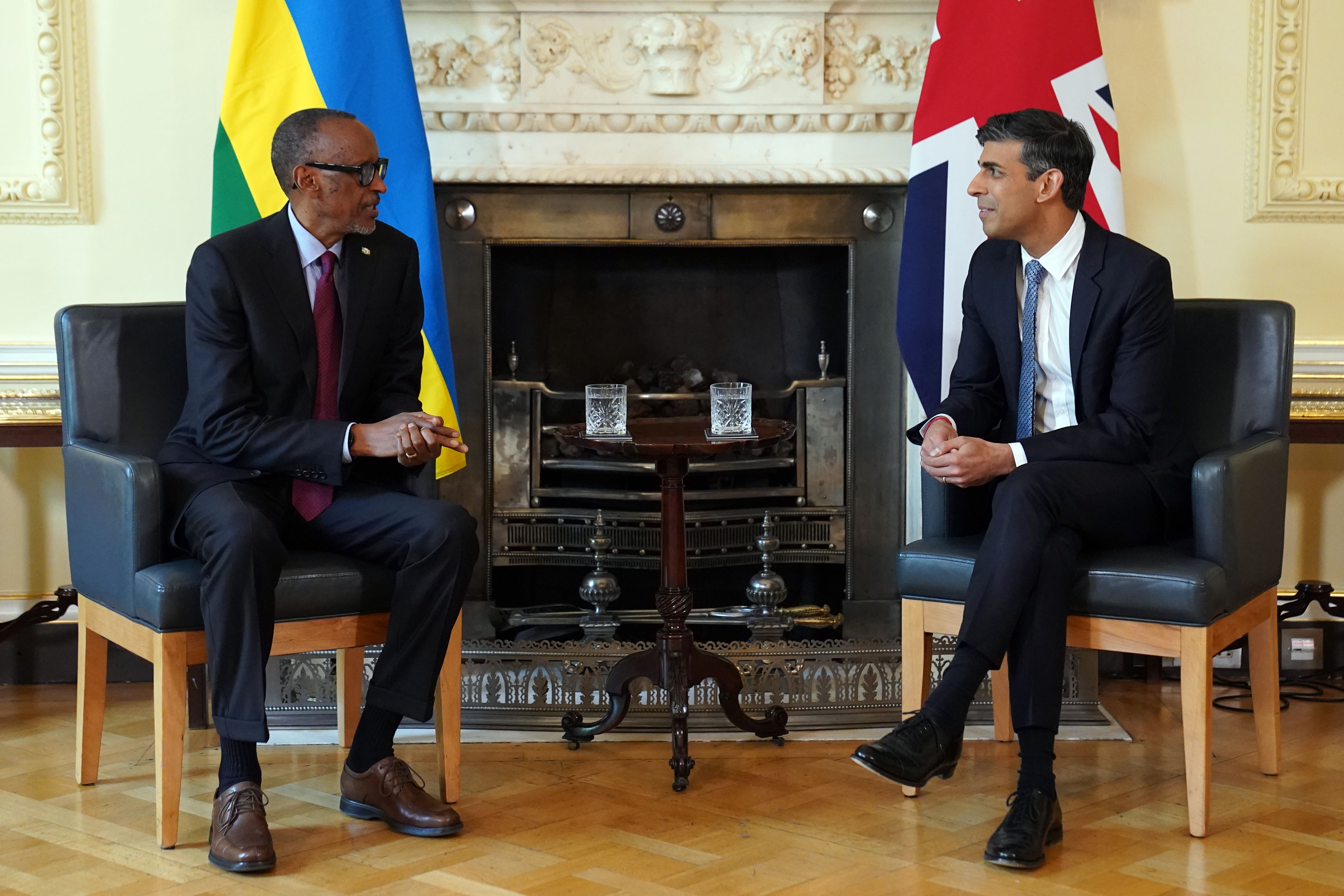Blow for Sunak as Rwanda plan suffers first defeat from Lords voting to delay treaty
PM loses crucial vote in upper chamber, as furious Nigel Farage calls for mass sacking of peers

Your support helps us to tell the story
From reproductive rights to climate change to Big Tech, The Independent is on the ground when the story is developing. Whether it's investigating the financials of Elon Musk's pro-Trump PAC or producing our latest documentary, 'The A Word', which shines a light on the American women fighting for reproductive rights, we know how important it is to parse out the facts from the messaging.
At such a critical moment in US history, we need reporters on the ground. Your donation allows us to keep sending journalists to speak to both sides of the story.
The Independent is trusted by Americans across the entire political spectrum. And unlike many other quality news outlets, we choose not to lock Americans out of our reporting and analysis with paywalls. We believe quality journalism should be available to everyone, paid for by those who can afford it.
Your support makes all the difference.Rishi Sunak’s Rwanda deportation plan suffered its first parliamentary defeat as peers voted through an unprecedented move seeking to delay the treaty with the east African nation.
The House of Lords backed by 214 votes to 171 – a majority of 43 – a motion to delay the controversial deportation agreement until the government can prove the country is safe.
The chamber supported a call by Tony Blair’s former attorney general Lord Goldsmith that parliament should not ratify the pact until government ministers can demonstrate Rwanda is safe.
The government agreed a legally-binding treaty with Kigali in December – arguing that it addressed concerns raised by the Supreme Court about the possibility of asylum seekers deported to Rwanda being transferred to a country where they could be at risk.
But Lord Goldsmith’s cross-party agreements committee said promised safeguards in the agreement are “incomplete” and must be guaranteed before the pact can be endorsed.
The initial blow delivered by peers signals a potential rough ride for the legislation in the Lords, despite Mr Sunak urging peers not to block the “will of the people”.
While the government insists that the defeat will not delay the PM’s bill moving through the Lords, there is now a risk that ignoring the new demand by peers could later be used in a legal challenge aiming to stop flights.

The treaty underpins Mr Sunak’s Safety of Rwanda (Asylum and Immigration) Bill which compels British judges to regard the country as safe.
Nigel Farage immediately lashed out at the result. “We must sack all current members of the House of Lords,” the hard-right figure tweeted on X. “It is beyond parody.”
Tory deputy chair Lee Anderson earlier said the Archbishop of Canterbury – a peer who has spoken out against the Rwanda plan – should put up small boat arrivals in the “spare rooms” of Lambeth Palace.
Lord Goldsmith explained that government now had until the middle of March to address 10 flawed areas of the treaty and show Rwanda is safe.
“We are not saying the treaty should never be ratified, but we are saying that parliament should have the opportunity to scrutinise the treaty … before it makes a judgement about whether Rwanda is safe.”
In a worrying sign for No 10, several Tory peers spoke out against Mr Sunak’s bill and the plan to put failed asylum seekers on one-way flights to Rwanda.
Conservative Lord Balfe even questioned if anywhere in Africa is “particularly safe”. He said he could not think of “any country in Africa that I would wish to go and live in”.
The Liberal Democrats’ Lord Razzall said the reason for the plan to send people to Rwanda was to suggest it was “such a hellhole that nobody would want to get on a boat”.

The peer mocked the government for now trying “so hard to demonstrate what a wonderful, safe place Rwanda is”, adding: “This might just be a moment for them to reflect on the purpose of their policy.”
Defending the plan in the Lords, junior Home Office minister Baron Sharpe said it was “offensive” to refer to Rwanda as a “hellhole”.
And Conservative peer Lord Howell, a former cabinet minister, questioned the move to demand the government demonstrates the country is safety.
“What does safe mean? It is an entirely subjective concept and always will be. In our own judicial system, is that safe? I don’t know. I am not sure all our postmasters would agree about the safety of our own judicial system.”
Last week the PM urged the Lords not to frustrate the “will of the people” over his plan to stop the boats, saying the public had enough of the “merry go round”.
Labour former shadow attorney general Baroness Chakrabarti criticised Mr Sunak for suggesting that he had some sort of “telepathic connection” will the “will of the people”.
The second reading debate on the Rwanda bill is due to be held in the Lords on 29 January.



Join our commenting forum
Join thought-provoking conversations, follow other Independent readers and see their replies
Comments